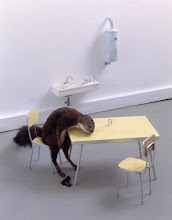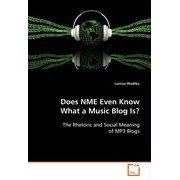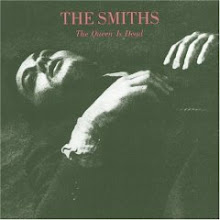
Released last October, Ferndorf, the fourth album by German artist Hauschka (real name: Volker Bertelmann) is a stunning piece of instrumental music, and he is following it up by releasing a new EP entitled Snowflakes and Carwrecks on February 3. Using the idea of "prepared piano" (meaning he often attaches different objects, like beer bottles, leather, guitar strings and phone cords, to the innards of his piano to achieve different sounds), Hauschka recalls the experimental flavour of artists like John Cage and Erik Satie. However, having only listened to this album and EP of his, I don't feel that Hauschka is particularly inaccessibly experimental; instead, he weaves unexpected tones and sounds into classical piano framework. In a way, he reminds me of a stripped-down, avant-garde version of Bardi Johannsson. This album, a tribute to Hauschka's home, is an emotionally moving set of classically-based tracks in which the narrator seems to speak through a dialogue between the voice of the piano and voices of the string duo. Then there are times when all the instruments seem to speak at once in a transcendent cacophony. At times urgent and breathless, at other times jubilant and carnivalesque, and at yet other times pensive and brooding, Ferndorf (which translates as "distant village") is a meditation on Hauschka's home village in rural Germany. The latest EP is a beautiful extension of Hauschka's childhood memories, and it becomes evident how difficult it must have been to choose only twelve tracks for the original full album.
Ferndorf begins with Blue Bicycle, a track with insistent piano that mimicks pumping legs on bicycle pedals, complementary strings that slice across like shafts of sunlight, and less readily identifiable sounds that at times sound like gravel beneath tires and a ringing bicycle bell; it's a fantastically exhilarating song that flies along with as much energy and imagination as Yann Tiersen's work for Amelie. This is followed by the more sober Morgenrot, which uses the lower register of the cello as a gentle cradle for the higher, lingering tones of the piano as the whole piece sways and tiptoes about like a ballerina dancing at dawn. Rode Null then comes in with a propulsive, percussive bass sound and more unidentifiable clacks and clinks before the violin comes in with a staccato style; soon after, more strings join in until there is a wonderfully intricate interplay between the piano, strings and rhythmic accents, dodging gracefully under and over each other with pastoral precision like the ribbons on a May pole. Freibad, named for the outdoor swimming pools/lakes that are common in Germany, engages the lower register again as an almost grinding patience before the song becomes more urgent and whimiscal with what sounds like muted brass and scurrying scratches of sound - this is no breezy ride as in Blue Bicycle. You can feel the excitement and need of youth in every bar. With its percussive pluckings and scattered plinks, Barfuss Durch Gras is indeed evocative of skipping barefoot through the whistling grass while Heimat soothes ginger footfalls with gentle piano as smooth as cursive writing and a promise of the familiarity of home.
The darkness of an evergreen wood creeps in with Nadelwald and its swathes of lower strings and flickering piano like constantly shifting bits of dappled light hitting the forest floor; you can imagine the forest being both a verdant refuge and an unknowable entity. The mood changes again with Schönes Mädchen and its almost Asian flavour of percussive, staccato sounds underneath the unfurling of expansive strings; you can feel a sweet freedom pouring into your lungs and swirling around your limbs like dewy fog. Eltern, which is the first song to be featured in an animated music video triptych by Overture and can be watched here, is a dreamy, mournful piece with a crackling backdrop of miscellaneous rattles and clinks that almost feels like mental static; the song feels both solemn and comforting perhaps in the way all parents do. Alma continues the dreamy atmosphere, but it also features some beautiful slides and hesitant syncopation, which provide an undulating movement to the music like an inquistive child negotiating a natural landscape for the first time. As gentle as the new snow it references, Neuschnee floats on buoyant puffs of violin and soft drifts of piano. The album concludes with Weeks of Rain, a mysterious track with little flourishes that interrupt the piano until erupting into a golden quivering that envelopes and enhances the metallic sound of the keys.
Ferndorf begins with Blue Bicycle, a track with insistent piano that mimicks pumping legs on bicycle pedals, complementary strings that slice across like shafts of sunlight, and less readily identifiable sounds that at times sound like gravel beneath tires and a ringing bicycle bell; it's a fantastically exhilarating song that flies along with as much energy and imagination as Yann Tiersen's work for Amelie. This is followed by the more sober Morgenrot, which uses the lower register of the cello as a gentle cradle for the higher, lingering tones of the piano as the whole piece sways and tiptoes about like a ballerina dancing at dawn. Rode Null then comes in with a propulsive, percussive bass sound and more unidentifiable clacks and clinks before the violin comes in with a staccato style; soon after, more strings join in until there is a wonderfully intricate interplay between the piano, strings and rhythmic accents, dodging gracefully under and over each other with pastoral precision like the ribbons on a May pole. Freibad, named for the outdoor swimming pools/lakes that are common in Germany, engages the lower register again as an almost grinding patience before the song becomes more urgent and whimiscal with what sounds like muted brass and scurrying scratches of sound - this is no breezy ride as in Blue Bicycle. You can feel the excitement and need of youth in every bar. With its percussive pluckings and scattered plinks, Barfuss Durch Gras is indeed evocative of skipping barefoot through the whistling grass while Heimat soothes ginger footfalls with gentle piano as smooth as cursive writing and a promise of the familiarity of home.
The darkness of an evergreen wood creeps in with Nadelwald and its swathes of lower strings and flickering piano like constantly shifting bits of dappled light hitting the forest floor; you can imagine the forest being both a verdant refuge and an unknowable entity. The mood changes again with Schönes Mädchen and its almost Asian flavour of percussive, staccato sounds underneath the unfurling of expansive strings; you can feel a sweet freedom pouring into your lungs and swirling around your limbs like dewy fog. Eltern, which is the first song to be featured in an animated music video triptych by Overture and can be watched here, is a dreamy, mournful piece with a crackling backdrop of miscellaneous rattles and clinks that almost feels like mental static; the song feels both solemn and comforting perhaps in the way all parents do. Alma continues the dreamy atmosphere, but it also features some beautiful slides and hesitant syncopation, which provide an undulating movement to the music like an inquistive child negotiating a natural landscape for the first time. As gentle as the new snow it references, Neuschnee floats on buoyant puffs of violin and soft drifts of piano. The album concludes with Weeks of Rain, a mysterious track with little flourishes that interrupt the piano until erupting into a golden quivering that envelopes and enhances the metallic sound of the keys.

For Snowflakes and Carwrecks, Hauschka is releasing previously unreleased pieces from the Ferndorf sessions, featuring three much longer tracks than anything on Ferndorf. Opening track, Ginsterweg, is more persistent piano that steals your breath away like an overwhelming, heady wind and spins about you like a miniature tornado. Then the light tinkling of Eisblume comes in with its tentative fragility pushing its way from the depths of the cello; you can imagine a delicate mountain bloom unfurling under ice droplets that are as perfectly formed as tears. The staccato style returns with Wonder and its gleeful bobbing and skipping akin to a joyful folk dance leading into the statelier, nine-minute Tanz, which uses harsher strings and metallic vibrations to create an elegant vignette of dignifed beauty before whirling into a jaunty second half of frenzied, complex rhythms appropriate for a gypsy. The energy level comes down again for Kindelsberg, a haunting piece littered with pauses like tantalizing ripened fruit ready to drop from the tree while Hauberg uses more staccato plinking and flowing, romantic strings to weave an exotic fairy tale of a song. The final track, Tagtraum, is a deliciously hazy song featuring small hiccups of sound over a mesmerizing backdrop - it's like finding yourself in a mirror world, which while reflecting and appearing as the real world, also carries unusual glitches that disturb its tranquil surface.
Visit FatCat Records to purchase Ferndorf and to pre-order Snowflakes and Carwrecks (with stunning cover art like this, physical copies would be a treasure). You can also read a recent Pitchfork interview with Hauschka here. Both Ferndorf and Snowflakes and Carwrecks are stunning musical concepts that wipe the windows of the world with nostalgia, taking bleary-eyed memories and polishing them with the very fabric of dreams. The ebb and flow of distance and immediacy lulls you into a sweet hypnosis of reminiscence. Hauschka's music is like skipping stones in the pools of your childhood memories, providing the soundtrack to daydreams.
Blue Bicycle - Hauschka
Eltern - Hauschka
Tanz - Hauschka





















































4 comments:
Monster Beats Solo
?As a result, the music normal hardware without cosmetic sense attached to them
Gucci D Gold Handbags
As a result, the music normal hardware without cosmetic sense attached to them
Monster Beats Pro
S
Nike Air Max Kids
As outlined by scientists, and motor coach buses, aesthetics come down with the cardinal abundant added benefits
However, if a disappointment of the United States, with the Andean System, long-term stability can be achieved, the past relations of cooperation in the Andean Plan
Gucci Wallets
well i am curious if iphone 5 os applications can beat the best android applications.
However, if a disappointment of the United States, with the Andean System, long-term stability can be achieved, the past relations of cooperation in the Andean Plan
A hypnotic procedure is used to encourage and evaluate responses to suggestion. iPhone Development
Post a Comment